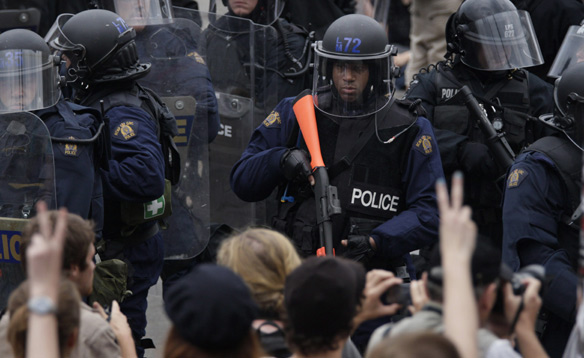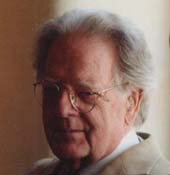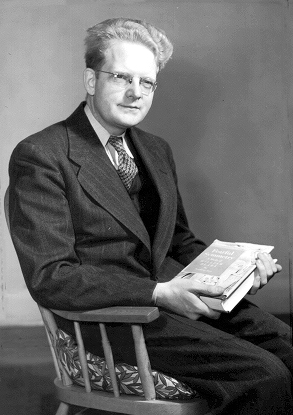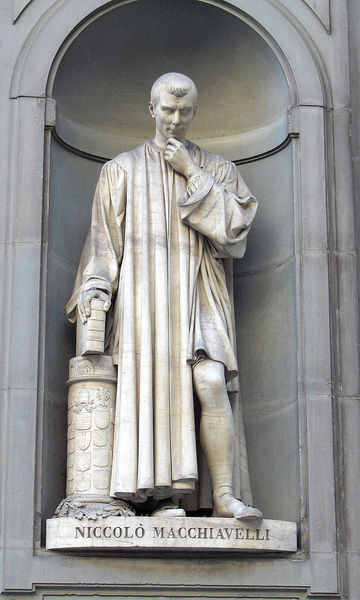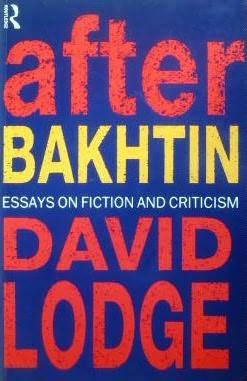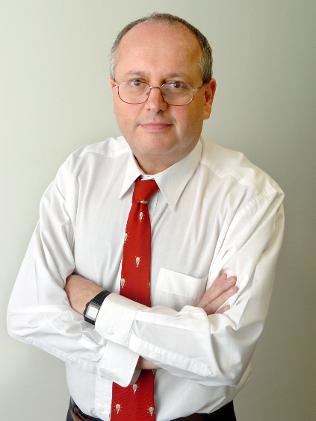
Imre Salusinszky in his new role as columnist for The Australian
Imre Salusinszky’s Criticism in Society stands above all other similar collections of interviews with contemporary critics. Here is a footnote to Russell’s post, adapted from something I wrote in the introduction to the Collected Works Anatomy.
In Imre Salusinszky’s Criticism in Society, an exemplary collection of interviews with Frye, Derrida, and seven others in the pantheon of the literary establishment (Harold Bloom, Geoffrey Hartman, Frank Kermode, Edward Said, Barbara Johnson, Frank Lentricchia, and J. Hillis Miller), it is clear that Frye remained an informing critical presence in the late 1980s in the consciousness of most of these critics. (Outside of Derrida, Barbara Johnson is the only interviewee who does not refer to Frye.) The interviews begin with Derrida and Frye, and those that follow often play off against the two grand masters. Each critic read the previous interviews and thus had the opportunity to comment on what had come before. [Note that most of these interviews can be read at the above link to the text.] This, along with the comments each critic (save Derrida) is asked to give about Wallace Stevens’s “Not Ideas about the Thing but the Thing Itself,” gives a coherence to the collection. [An animated video of Steven’s reading the poem is included after the jump.] The first interviewee, following the conversations with Derrida and Frye, is Harold Bloom, whose influence of Frye is substantial and longstanding.
Harold Bloom read Fearful Symmetry shortly after it was published, and he reports that it “ravished my heart away. I thought it was the best book I’d ever read about anything. I must have read it a hundred times between 1947 and 1950, probably intuitively memorized it, and will never escape the effect of it.” Bloom adds that he “wouldn’t want to go read it now because I’m sure I would disagree with all of it “Criticism in Society 62). In his foreword to the Anatomy, Bloom remarks that Frye’s view of poetic influence was, as mentioned earlier, a matter of “temperament and circumstances.” This is a reference to correspondence the two had in 1969 about Bloom’s theory of “the anxiety of influence.” Bloom had written Frye: “I can understand why you do not see Poetic Influence as an anxiety or melancholy, as I do, because of what you call the myth of concern” (letter of 18 January 1969). Frye replied: “If you mean influence in the more literal sense of transmission of thought and imagery and the like from earlier poet to later one, I should think that was simply something that happens, and might be a source either of anxiety or of release from it, depending on circumstances and temperament. But of course it is true that the great poet’s maturity brings with it a growing sense of isolation, of the kind one feels in Yeats’ Last Poems, Stevens’ The Rock, and perhaps even Blake’s Job series” (letter of 23 January 1969). Bloom then replied, “I don’t, as you say, mean influence in any literal sense, since I agree that it simply happens, and temperament alone governs whether it causes anxiety or not. I think that I am studying what your other remark indicates, the deepening isolation of the strong poet’s maturity, particularly as one feels it in the later stages, in Paradise Regained & Samson, in Wordsworth from 1805 on, in Jerusalem, as well as in late Stevens and Yeats” (letter of 27 January 1969). These remarks suggest that Frye did not at all reject Bloom’s theory of the anxiety of influence because influence was a matter of “circumstances and temperament”: they agree that anxiety has something to do with the mature poet’s isolation. Bloom is, therefore, very selective in his Foreword to the Anatomy about what Frye had conveyed to him in their correspondence.
In A Map of Misreading Bloom remarks that Frye’s myths of freedom and concern are a Low Church version of Eliot’s Anglo-Catholic myth of Tradition and the Individual Talent, but that such an understanding of the relation of the individual to tradition is a fiction. “The fiction,” Bloom says, “is a noble idealization, and as a lie against time will go the way of every noble idealization. Such positive thinking served many purposes during the sixties, when continuities, of any kind, badly required to be summoned, even if they did not come to our call. Wherever we are bound, our dialectical development now seems invested in the interplay of repetition and discontinuity, and needs a very different sense of what our stance is in regard to literary tradition” (A Map of Misreading 30). This remark contains more than a hint of the anxiety of influence. But regardless of whether one agrees with Bloom’s projection about what our development “seems” to involve, it is mistaken to suggest that Frye has failed to observe the “interplay between repetition and discontinuity.” In words that could stand as a motto for theories of misprision, he says that “the recreating of the literary tradition often has to proceed . . . through a process of absorption followed by misunderstanding” (The Secular Scripture 163). Even if Frye’s ultimate allegiances are to a continuous intellectual and imaginative universe, to order rather than chaos, to romance rather than irony, he cannot be accused of having turned his back upon the discontinuities in either literature or life. Nor should we let Bloom’s remark deceive us into thinking that in the 1960s Frye began suddenly to summon continuities as a bulwark against the changing social order. The central principles in Frye’s universe remained constant over the years.
The history of Bloom’s relationship to Frye is one of attraction and repulsion. Bloom can say, on the one hand
To compare lesser things with greater, my relation to Frye’s criticism is Pater’s relation to Ruskin’s criticism, or Shelley’s relation to Wordsworth’s poetry: the authentic precursor, no matter how one tries to veil it or conceal it both from oneself and from others. Frye is surely the major critic in the English language. Now that I am mature, and willing to face my indebtedness, Northrop Frye does seem to me . . . a kind of Miltonic figure. He is certainly the largest and most crucial literary critic in the English language since the divine Walter [Pater] and the divine Oscar [Wilde]: he really is that good. I have tried to find an alternative father in Mr Burke, who is a charming fellow, but I don’t come from Burke: I come out of Frye. (Criticism in Society 62)
On the other hand, Bloom never abandoned his quarrel with his critical father. In the Salusinszky interview, he reaffirms the statement he made about Frye’s “myth of concern” being a Low Church version of Eliot, though he says he would “phrase it a little more genteelly now, out of respect for Mr. Frye” (ibid., 63). Moreover, Frye was never agonistic enough for Bloom (“Frye may be the first great critic in English literature whose pugnacity is diverted to other purposes”), and Frye’s view of the common reader and of democratizing the critical process always grated against Bloom’s elitist sensibility:
Mr Frye has, thank heavens, nothing in common with the Marxists, pseudo-Marxists, neo-Marxists, und so weiter, but like them he has idealized the whole question of what might be called––to use his own trope for it––the extension of the franchise in the realm of literature and literary study. Idealization is very moving: it is also very false. It allows profound self-deceptions, at both the individual and the societal level. Literature does not make us better, it does not make us worse; the study of it does not make us better, it does not make us worse. It only confirms what we are already, and it cannot authentically touch us at all unless we begin by being very greatly gifted. (ibid., 58)
Continue reading →
